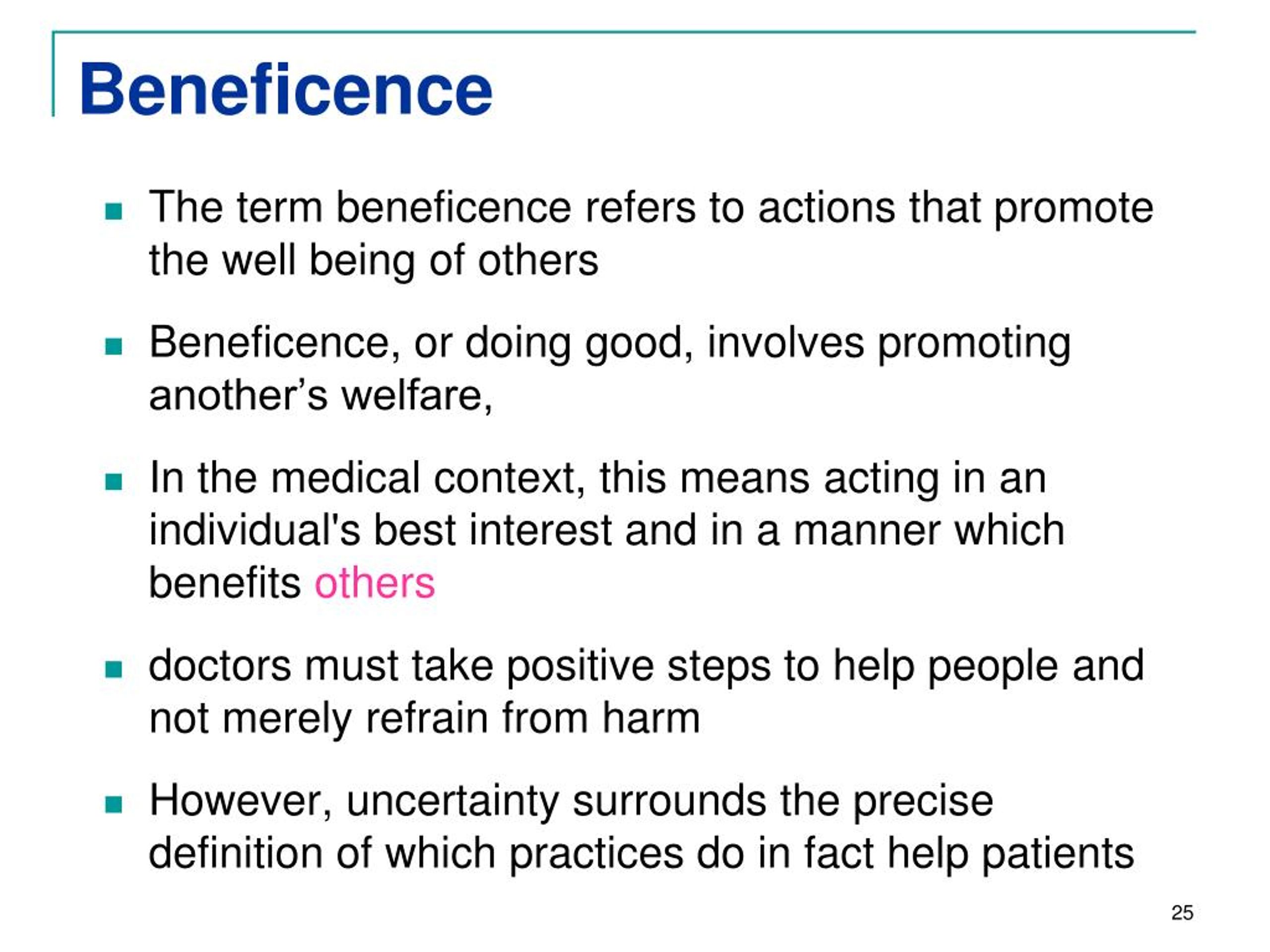
Any hospital with an emergency department is required to screen for emergency medical conditions if requested and, if such a condition exists, provide treatment until that condition is stabilized.This law was established in the Emergency Medical Treatment and Labor Act ( EMTALA).A physician is legally obligated to treat a patient when failing to provide treatment would immediately endanger the patient's life.

#BENEFICENCE ETHICAL PRINCIPLE PROFESSIONAL#
External influence (e.g., payment from a pharmaceutical company) on a physician's decision-making process is considered a professional conflict of interest. Prior to medical interventions, patients should receive information on the options available, including the potential risks and benefits, in order to provide informed consent. Physicians are legally and ethically obligated to keep patients' medical information confidential, and may only break this confidentiality in specific scenarios (e.g., if the patient has a reportable disease or they pose a threat to themself or others).
#BENEFICENCE ETHICAL PRINCIPLE FULL#
Patients have the right to full disclosure about their health, medical status, medical records, and involvement in research protocols.


In most circumstances, a parent or guardian is required to make decisions for unemancipated minors exceptions include decisions related to reproductive health, mental health, and substance use disorders. A surrogate decision-maker may be appointed to make decisions for patients who lack decision-making capacity. Patients must demonstrate decision-making capacity in order to make decisions about their health care. The core ethical principles of medicine are autonomy, beneficence, nonmaleficence, and justice. Best medical practice is founded upon the ethical principles that guide health care providers who care for patients or perform research.


 0 kommentar(er)
0 kommentar(er)
